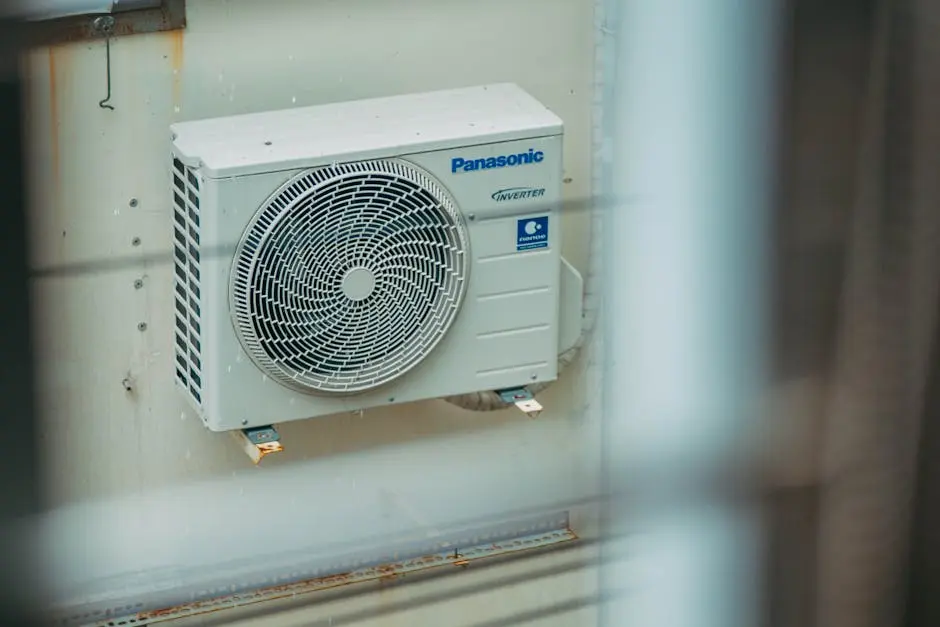Understanding how a quality HVAC system influences energy efficiency can be key to reducing energy costs and enhancing comfort at home or work. In this FAQ, we’ll explore the elements of quality HVAC systems that contribute to energy savings.
What is a Quality HVAC System?
A quality HVAC system is one that is efficient, reliable, and appropriately sized for the space it serves. These systems often feature advanced components designed to optimize performance while minimizing energy usage.
One important factor is the SEER rating—the Seasonal Energy Efficiency Ratio—which is a measure of an HVAC system’s cooling efficiency. Units with high SEER ratings offer more efficient cooling by using less energy to achieve the same amount of cooling as older models. For homeowners, this translates into lower utility bills and a more environmentally friendly home. Choosing a system with a high SEER rating can be a significant step toward improving energy efficiency and sustainability.
Quality HVAC systems often come with variable-speed motors and smart thermostats. These components help in adjusting the power usage according to demand, thereby reducing unnecessary consumption and improving overall system efficiency. Such features do not just impact costs but also extend the equipment’s lifespan by minimizing wear and tear.
How Does Proper Installation Impact Efficiency?
Proper installation ensures that HVAC systems operate at their intended efficiency. Incorrect installation can lead to energy losses, reducing system performance and increasing costs.
At Tech Star HVAC, we emphasize the importance of professional installation. A poorly installed system might suffer from problems like air leaks, incorrect refrigerant charge, and improper airflow, which can significantly impair performance. Installing an HVAC system by a certified professional guarantees that the unit is calibrated precisely to meet the specific requirements of your living space, ensuring optimal efficiency and longevity.
An efficiently installed system also ensures optimal airflow, preventing common issues like hot spots or uneven temperature distribution. This not only improves comfort but also reduces the system’s workload, leading to further energy savings.
Why is Regular Maintenance Important?
Regular maintenance keeps your HVAC system running smoothly and efficiently. Routine checks and cleanings can prevent small issues from becoming larger, costlier problems that waste energy.
Scheduled maintenance includes tasks like replacing air filters, cleaning coils, and inspecting the ductwork. These actions ensure that your system runs at peak efficiency by maintaining the integrity of the airflow and functionality of the components. For example, a clean air filter allows for better airflow and less energy consumption, while dirty filters can hinder operation and lead to spikes in energy usage.
Moreover, annual inspections by HVAC professionals can identify potential issues before they escalate. Such inspections contribute to energy efficiency by ensuring all parts of the system operate under the manufacturer’s specifications and make necessary adjustments to optimize performance.
What Role Does Technology Play in Energy Efficiency?
Modern HVAC systems often include smart technologies that adjust settings based on the building’s usage and conditions, optimizing temperature control and reducing unnecessary energy use.
Smart thermostats are a perfect example of how technology contributes to energy efficiency. These devices learn your schedule and adjust the temperature accordingly, ensuring that energy is used efficiently only when needed. This smart management can lead to significant savings on energy bills by avoiding unnecessary heating or cooling when spaces are unoccupied.
The advent of Internet of Things (IoT) technology in HVAC systems has further enhanced energy efficiency. IoT systems provide real-time alerts and remote management capabilities, allowing users to monitor and adjust settings from their smartphones. This ensures the system uses energy efficiently while maintaining a consistent, comfortable environment.
For a deeper understanding of how technology impacts HVAC energy efficiency, consider looking into how advanced technology boosts energy efficiency.
How to Choose the Right HVAC System for Your Needs?
Selecting the right HVAC system involves considering the size of your space, climate, and specific needs. Consulting with HVAC professionals can help ensure you choose a system that balances quality with efficiency.
Understanding your specific heating and cooling requirements is vital. Evaluate your home’s square footage, insulation quality, and typical climate conditions. For instance, homes in Martinsburg, WV, need systems that can handle both hot summers and cold winters efficiently.
Investing in systems with energy-efficient certifications, like Energy Star, guarantees high performance and significant energy savings. These systems not only comply with stringent energy-saving criteria but also offer better comfort, lower operating costs, and minimized environmental impact.
For tips and insights on picking the best energy-efficient HVAC system, visit our West Virginia HVAC tips.
Choosing the Right System for Maximum Efficiency
Investing in a quality HVAC system can lead to significant energy savings over time. By ensuring proper installation, regular maintenance, and smart usage, homeowners and businesses alike can maximize their HVAC system’s efficiency. Remember, a quality HVAC isn’t just about keeping a space comfortable; it’s also about doing so in the most energy-efficient way possible. For more insights on selecting the best system, explore our guide to energy-efficient HVAC solutions.




